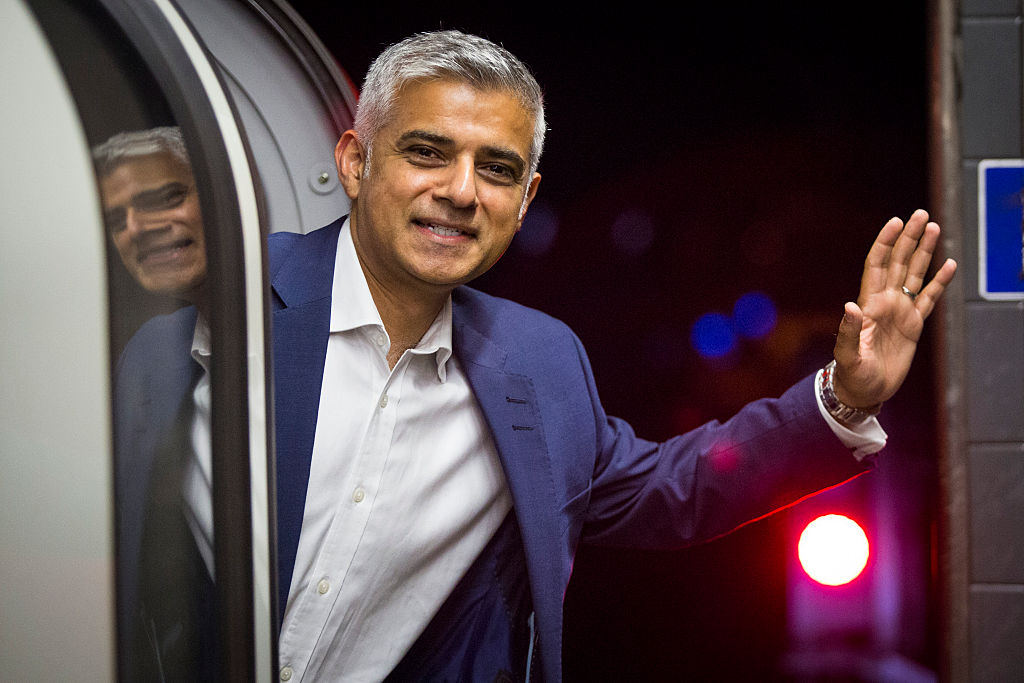Earlier this week, Chris Skidmore and Sadiq Khan announced they were ‘teaming up’ to defeat the politicians they believe are attempting to thwart climate action. In an article for the Guardian, the duo has put aside political differences to ‘set an example’ of what is possible. Those differences could be disputed: the Conservative member for Kingswood is further to the left than many MPs on the Opposition benches. But it was by no means the most dubious claim in their piece.
Consider, for instance, Khan’s assertions over Ulez, London’s Ultra Low Emission Zone. He repeats that it was brought in to prevent premature deaths and illness, though it seems more likely that it was designed to plug the £3 billion hole in Transport for London’s finances the Mayor created by freezing fares early in his tenure. His claim that the policies in the ‘London Environment Strategy’ (including Ulez) will reduce new incidences of disease by 300,000 and prevent 4,000 pollution-related deaths a year in the capital, has been widely disputed.
In fact, nearly all of the massive fall in NOx emissions in the last 30 years happened before 2010, and recent drops are largely attributable to Covid lockdowns. As for the idea that Ulez was directly responsible for the reduction in polluting vehicles: this was instead result of natural retirement rather than Khan’s exorbitant levies. Of the 40 million motor vehicles currently on Britain’s roads, around 5 per cent are scrapped per year.
Londoners concerned about these levies can take little solace in his scrappage scheme, given only a third of those who asked for financial help from TfL received it. Just 15,000 cars have been scrapped under the scheme in an annual total of two million, making it more of a rounding error than revolutionary measure.
As for Skidmore, next week the government will publish its response to his net zero review. The report set out ten ‘missions,’ which were mostly shopping lists for commercial and vested interests pulled together by someone who believes that only massive government intervention can down emissions. As Ross Clark wrote in The Spectator, it could not seriously be considered ‘independent,’ given Skidmore was the very minister who pushed the net zero commitment through the House of Commons four years ago.
That the former Energy and Clean Growth Minister was able to bind the UK to this arbitrary target without even a vote underscores how preposterous this new collaboration with Khan really is. Politicians aren’t equivocating on climate action, at least not in significant numbers. They’re competing to virtue signal at the public’s expense.
This is precisely why we have a heat pump fiasco, where huge subsidies have been thrown at persuading us to make the switch and another target – of 600,000 a year – has been set. That we don’t have enough plumbers to install them, and may not generate enough electricity to power them all, are secondary issues. And it’s why we have a government banning all petrol and diesel cars from 2030, but failing to put in place the infrastructure required to support the shift.
We face diminishing returns as we approach low levels of emissions, meaning very high costs of further reductions, but refuse to consider mitigation and adaptation options like flood defences, crop diversification, reforestation, painting buildings white and geoengineering. We ignore the possibility that we might have more impact worldwide by orienting aid programmes towards renewable energy rather than implementing very costly changes here. And, of course, we allow militant protest groups to insist on a fracking ban, which would bring down both costs and emissions, even if it is an imperfect solution.
It was reported on Friday that many of those same eco-activists can climb motorway gantries, throw paint over artwork and smash windows without consequence, now that leading lawyers will be signing a ‘Declaration of Conscience’ vowing to refuse their services in prosecuting activists from groups like Just Stop Oil and Extinction Rebellion. Our entire legal system depends on barristers putting their personal views to one side. When the profession begins to pick and choose, justice and the rule of law will suffer.
Next week will likely bring more platitudes and promises in response to Skidmore’s promotional brochure for a larger state, higher taxes and more regulation. We’ll be assured that Britain is at the forefront of the global charge to decarbonise, although that should worry rather than comfort us. If everyone else really is moving more slowly then, given we are a small percentage of the total, there is zero chance of Net Zero on a global scale.
And we’ll hear that the economic case is self-evident, which is self-evidently wrong: if it were true we wouldn’t need government action on this scale. Addressing climate change is vital, but let’s not pretend that the Skidmore-Khan vision is the ‘economic opportunity of the 21st century,’ rather than one that risks impoverishing Britain during a cost-of-living crisis.






Comments